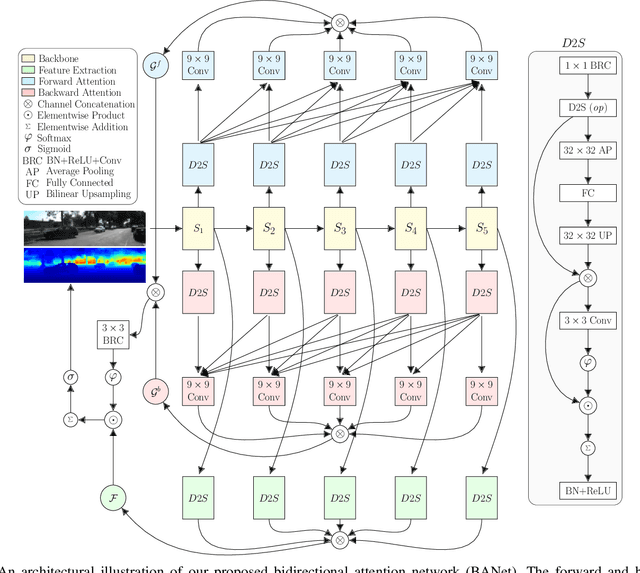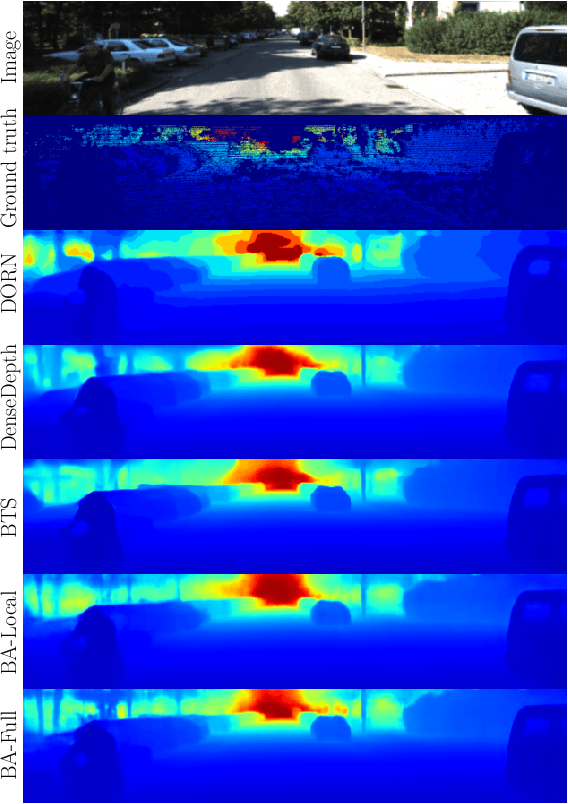Bidirectional Attention Network for Monocular Depth Estimation
Paper and Code
Sep 01, 2020



In this paper, we propose a Bidirectional Attention Network (BANet), an end-to-end framework for monocular depth estimation that addresses the limitation of effectively integrating local and global information in convolutional neural networks. The structure of this mechanism derives from a strong conceptual foundation of neural machine translation, and presents a light-weight mechanism for adaptive control of computation similar to the dynamic nature of recurrent neural networks. We introduce bidirectional attention modules that utilize the feed-forward feature maps and incorporate the global context to filter out ambiguity. Extensive experiments reveal the high degree of capability that this bidirectional attention model presents over feed-forward baselines and other state-of-the-art methods for monocular depth estimation on two challenging datasets, KITTI and DIODE. We show that our proposed approach either outperforms or performs at least on a par with the state-of-the-art monocular depth estimation methods with less memory and computational complexity.
 Add to Chrome
Add to Chrome Add to Firefox
Add to Firefox Add to Edge
Add to Edge